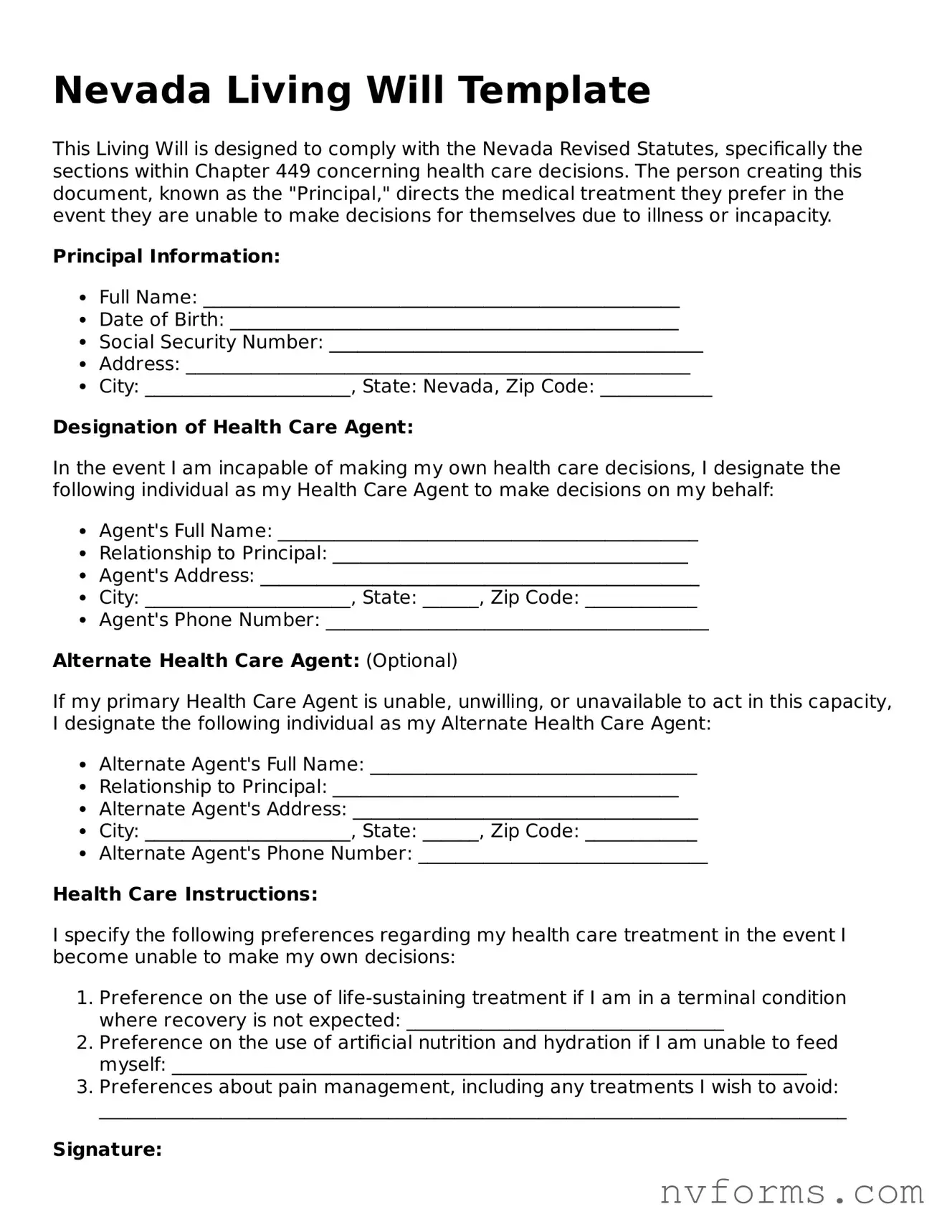Nevada Living Will Template
This Living Will is designed to comply with the Nevada Revised Statutes, specifically the sections within Chapter 449 concerning health care decisions. The person creating this document, known as the "Principal," directs the medical treatment they prefer in the event they are unable to make decisions for themselves due to illness or incapacity.
Principal Information:
- Full Name: ___________________________________________________
- Date of Birth: ________________________________________________
- Social Security Number: ________________________________________
- Address: ______________________________________________________
- City: ______________________, State: Nevada, Zip Code: ____________
Designation of Health Care Agent:
In the event I am incapable of making my own health care decisions, I designate the following individual as my Health Care Agent to make decisions on my behalf:
- Agent's Full Name: _____________________________________________
- Relationship to Principal: ______________________________________
- Agent's Address: _______________________________________________
- City: ______________________, State: ______, Zip Code: ____________
- Agent's Phone Number: _________________________________________
Alternate Health Care Agent: (Optional)
If my primary Health Care Agent is unable, unwilling, or unavailable to act in this capacity, I designate the following individual as my Alternate Health Care Agent:
- Alternate Agent's Full Name: ___________________________________
- Relationship to Principal: _____________________________________
- Alternate Agent's Address: _____________________________________
- City: ______________________, State: ______, Zip Code: ____________
- Alternate Agent's Phone Number: _______________________________
Health Care Instructions:
I specify the following preferences regarding my health care treatment in the event I become unable to make my own decisions:
- Preference on the use of life-sustaining treatment if I am in a terminal condition where recovery is not expected: __________________________________
- Preference on the use of artificial nutrition and hydration if I am unable to feed myself: ____________________________________________________________________
- Preferences about pain management, including any treatments I wish to avoid: ________________________________________________________________________________
Signature:
I understand that this Living Will represents my wishes concerning my health care. I am mentally competent and under no duress or undue influence as I sign this document.
- Principal's Signature: _______________________________ Date: ____________</

